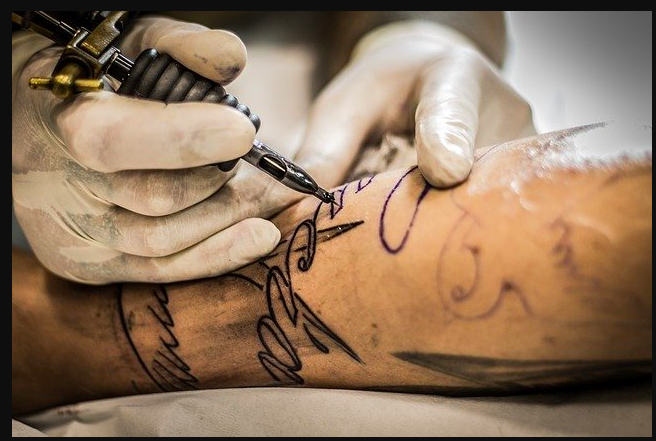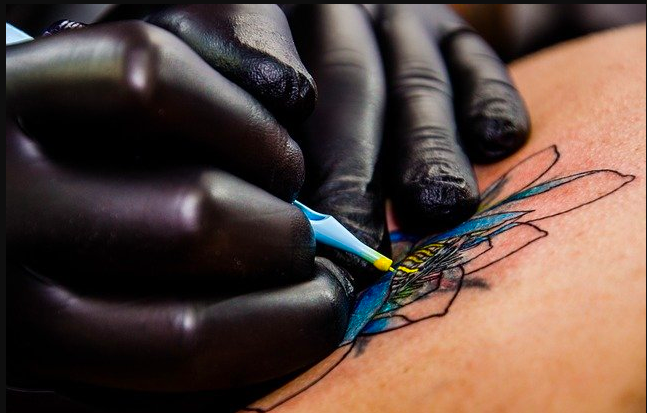
For many people with ink, their tattoos are some of the most memorable experiences of their lives, as well as some of their most prized possessions. Tattoos can commemorate loved ones, mark the end or beginning of a significant chapter in a person’s life, or even represent the loss of a bet or the acceptance of a challenge or dare. They can also be none of the above and simply indicate a person’s desire to turn their body into a canvas for art, symbolism and ideas.
Whatever a person’s motivations for getting a tattoo, it always helps to have a concept in mind and an understanding of what the process entails from beginning to end. Below is a list of considerations to keep in mind before, during and after you get your tattoo.
Mental preparation
Getting a tattoo is not only a financial and time undertaking, but it is a psychological one too. Tattoos are permanent body modifications that require metal needles and some trauma to your skin. Your skin is full of nerve endings and is sensitive–in some places much more than others–so, depending on your pain tolerance, tattoos can involve substantial discomfort.
While all tattoos involve some amount of pain, no two tattoos or tattoo locations are the same. The best thing you can do prior to making the decision to get a tattoo is to inform yourself on the variety of factors that determine how much your tattoo is going to hurt.
Brainstorming
For some people, tattoo ideas are quite straightforward. Their ink is going to represent someone or something near and dear to their heart. In that case, they don’t really have to do too much brain-racking. These tattoos are often based on photos of people, places or events, or even more subtle word or picture references to them.
Other times, people know they want a tattoo, but can’t quite decide on what will look best and where on their body it should go. If you are stuck brainstorming ideas, a good idea is to browse Instagram for examples of what you are looking to get. You might end up seeing something that really speaks to you, which you can then use as a template and add your own ideas to.

What to do before
Because of the pain factor mentioned above, part of your preparation for a tattoo should involve a psychological component. Come to terms with the fact that you are about to undergo a procedure that is not going to feel “good. This is not a hot stone massage. Accept that you will be experiencing some discomfort and it will likely be refreshingly anticlimactic once you are in the artist’s chair.
It is also important to keep in mind the various precautions and health and safety measures you will need to take before getting your tattoo. Make sure you stay properly hydrated to ensure your skin is taught and easy to work with. Moisturize the area and avoid things like caffeine and aspirin (which can thin your blood). Especially avoid alcohol and, despite the cultural glorification of drinking before a tattoo, do not get drunk, as it not only thins your blood but impairs your judgement while you are under the needle.
Aftercare: Hygiene
Following a tattoo, you are going to need to treat the area as you would any other exposed skin. Your skin is essentially raw after a tattoo, which makes it much more susceptible to bacterial infection. Wash with plain, unscented soap and water, taking care to touch the area gently. Don’t wear clothing that will stick to the healing area and potentially trap sweat and bacteria, or become stuck to the skin and rip it when you take your clothes off.
Tattoos can take two or more weeks to heal. It is important not to pick at any scabs while they do. This can not only damage the design (which you just invested money into), but can result in infection and even disfiguring scars.
Aftercare: Exposure to the elements
Another essential part of aftercare is avoiding exposure to the elements, and particularly the sun. UV radiation is hard on your skin at the best of times and should always be protected against with adequate SPF sunblock, but following a tattoo, your skin is extra vulnerable.
Avoid sun exposure as much as you can during the healing process. This not only ensures that you are not damaging your skin, but that you are protecting the integrity of the design. Tattoo ink fades in the sun, and you might find your fresh ink duller and less vibrant than you imagined if you take a new tattoo to the beach or pool right away.
Conclusion
Getting a tattoo should be a safe, fulfilling, memorable experience. The vast majority of the time it is, but there are some things you need to do before and after to prepare your mind and body for the experience and make sure the result is something you are going to be happy having on your body for the rest of your life. Keep the above brainstorming, preparation and aftercare guide in mind the next time you decide to purchase yourself a new piece of body art.






